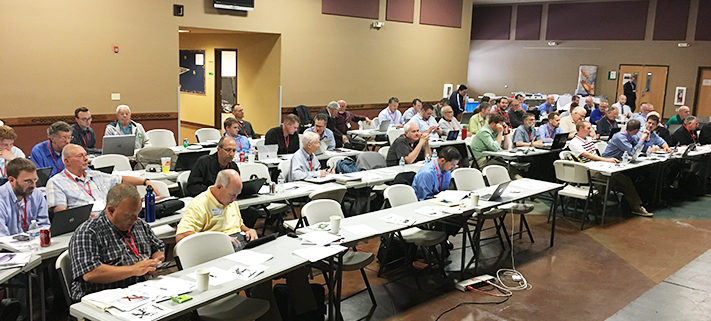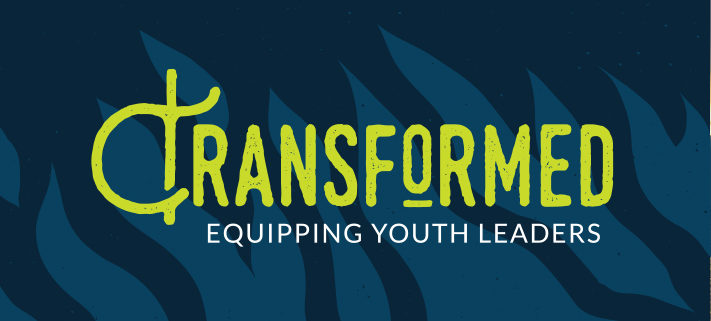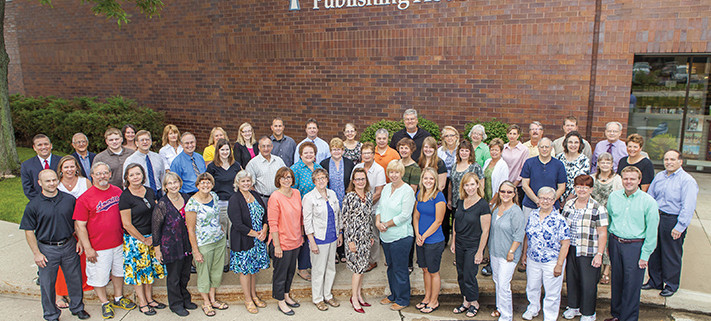Each of WELS’ 12 districts met in convention this June, considering local ministry topics along with issues that apply to the entire synod.
Lay delegate Paul Giovinazzo, a member of Good Shepherd, South Attleboro, Mass., summed up his North Atlantic District convention experience by saying, “When you come from a congregation that is isolated from other like-minded believers, you often feel like you are on an island all by yourself. It is so nice to be reminded that you are part of something bigger, that there are other Christians who share your faith and an appreciation for the truths found in God’s Word.”
Each district held elections for district officers. Four new district presidents were elected—Philip Hirsch, Nebraska District; Charles Westra, South Atlantic District; David Kolander, Southeastern Wisconsin District; and Michael Jensen, Western Wisconsin District.
In addition to elections, worship, Bible study, and presentations, delegates considered information reported by the areas of ministry in the Report to the Twelve Districts.
Delegates also had a sneak peek of the new Luther movie being developed by Boettcher+Trinklein Television, Inc., through the support of Thrivent Financial, to celebrate the 500th anniversary of the Reformation in October 2017. The movie will be shown on PBS. To view the trailer, visit wels.net/reformation500.
Four new district presidents elected
As Mark Schroeder, synod president, notes, “A turnover of one-third of the district presidents is rare.”
Yet in 2016, four new district presidents were elected. This took place because three district presidents—John Guse, South Atlantic District; David Rutschow, Southeastern Wisconsin District; and Herb Prahl, Western Wisconsin District—announced before the conventions that they would not seek re-election as they were considering retiring from the full-time ministry and because Nebraska District President Earle Treptow accepted a call to Wisconsin Lutheran Seminary.
The president of each district plays an important role in the ministry of the synod. His responsibilities include
• overseeing the doctrine and practice in his district’s congregations;
• providing congregations with call lists to fill vacancies;
• encouraging the called workers in his district and providing them with individual counsel; and
• serving on the Conference of Presidents.
Meet the men who were newly elected in June to serve as district presidents.
Philip Hirsch, Nebraska District
Currently serves: Hope, Manhattan, Kan.
Family: He and his wife, Kristi, have seven children
What do you view as your most important job as district president? To help the brothers proclaim the unconditional gospel of Jesus Christ at a time when it is so easy to take one’s eye off the ball and do some other nice or even churchy thing—something other than proclaim the unconditional gospel of Jesus Christ to the sinner-saints.
What are some ways that God has blessed the Nebraska District? The Nebraska District is 89 congregations spread all around mid-America and the Rocky Mountain West, gathering in the name of the Lord of the church and trusting in his presence. We’re blessed with older brothers and sisters who have seen the trends come and go and yet are pleased and thankful for the gospel, above all. We’re blessed to serve dyed-in-the-wool confessional Lutherans who know what that means. And we’re blessed to serve many new converts to the faith who are simply overjoyed to know the peace of God in Christ Jesus. We’re blessed with Lutheran school principals and teachers who recognize the privilege of serving the gospel. We’re blessed with two district mission boards that take seriously the business of planting churches in the world’s third largest mission field—the United States of America.
Michael Jensen, Western Wisconsin District
Currently serves: St. Mark’s, Watertown, Wis.
Family: He and his wife, Jane, have seven children and three grandchildren
What do you view as your most important job as district president? Being a servant/pastor of Christ to the called workers, congregations, schools, and people of our district.
How has God prepared you to serve as district president? As I look back on my life and the people Christ has placed in my life, I see the gracious hand of my Savior in every aspect of my life. I’ll also add my voice to the apostle Paul’s: “Our competency comes from Christ” (2 Corinthians 3:4-6).
What are some ways that God has blessed the Western Wisconsin District? The Western Wisconsin District includes
• 172 congregations filled with faithful people and faithful pastors listening to and proclaiming Christ’s gospel;
• 104 Lutheran elementary and preschools, three area Lutheran high schools, and a synod preparatory school, all filled with hundreds of faithful gospel teachers serving and children hearing of their Savior every day; and
• countless opportunities for outreach even in an established district.
Any other thoughts? I’m just another sinner-saint, claimed and kept by God’s underserved love in Christ, “pressing on toward the goal for which Christ took hold of me” (Philippians 3:12).
David Kolander, Southeastern Wisconsin District
Currently serves: Christ the Lord, Brookfield, Wis.
Family: He and his wife, Lu, have three children.
What do you view as your most important job as district president? To seek to apply God’s Word to people and situations in a Christ-centered, evangelical manner. In that connection it is also important for the district president to encourage the called workers of his district to “watch their life and their doctrine closely,” as the apostle Paul encouraged Timothy. As called workers, we want to say what God wants us to say, and we want to live in a way that is consistent with God’s wonderful message of forgiveness.
What are some ways that God has blessed the Southeastern Wisconsin District? The Southeastern Wisconsin District is blessed to have such a high concentration of WELS members, congregations, and schools. One thing this allows us to do is to provide extra opportunities to worship, fellowship, and serve. Our challenge is to not take these many opportunities for granted but to be grateful to God for the extra chances we have to be built up and edified in our Christian faith and life. It is a joy to see so many people in one area look at God’s Word in the same way with humble love, gratitude, and respect.
Any other thoughts? Please pray for all of us who serve you in this way, that God might give us joy, patience, wisdom, firmness, and love.
Charles Westra, South Atlantic District
Currently serves: Christ Our Savior, Columbia, Tenn.
Family: He and his wife, Deb, have four children
What do you view as your most important job as district president? I have been called to serve as pastor to the called workers and congregations of our district. That is an immense privilege and tremendous responsibility. That pastoral responsibility could bring many different challenges and duties. I am comforted by the simple fact that it is all “means of grace” ministry and that the Lord of the church remains in control of his church.
How has God prepared you to serve as district president? He declared that I am innocent through the work of his Son. He claimed me as his own in baptism. He continues to nourish me through his life-giving Word and sacrament. Over the years of representative ministry he has also given me opportunities for experience in our congregation and in working with many other congregations in our district and beyond.
What are some ways that God has blessed the South Atlantic District? God has blessed the South Atlantic District with a faithful and evangelical district president for more than three decades. We are thankful to God for Pastor John Guse and his leadership among us. Through Pastor Guse, God has given an example of mission spirit and faithful ministry.
Members of the Conference of Presidents
Mark Schroeder, synod president
James Huebner, first vice president
Joel Voss, second vice president
Jon Buchholz, Arizona-California District president
Charles Degner, Minnesota District president
Douglas Free, Dakota-Montana District president
Philip Hirsch, Nebraska District president
Michael Jensen, Western Wisconsin District president
David Kolander, Southeastern Wisconsin District president
Donald Patterson, South Central District president
John Seifert, Michigan District president
John Steinbrenner, Pacific Northwest District president
Donald Tollefson, North Atlantic District president
Charles Westra, South Atlantic District president
Joel Zank, Northern Wisconsin District president
Robert Pasbrig, synod secretary (advisory member)
Do you have a manuscript, idea, or story from your own life you’d like to share for use in Forward in Christ or on wels.net? Use our online form to share it to our editorial office for consideration.
Get inspirational stories, spiritual help, and synod news from Forward in Christ every month. Print and digital subscriptions are available from Northwestern Publishing House.
Author:
Volume 103, Number 9
Issue: September 2016
Copyrighted by WELS Forward in Christ © 2021
Forward in Christ grants permission for any original article (not a reprint) to be printed for use in a WELS church, school, or organization, provided that it is distributed free and indicate Forward in Christ as the source. Images may not be reproduced except in the context of its article. Contact us








